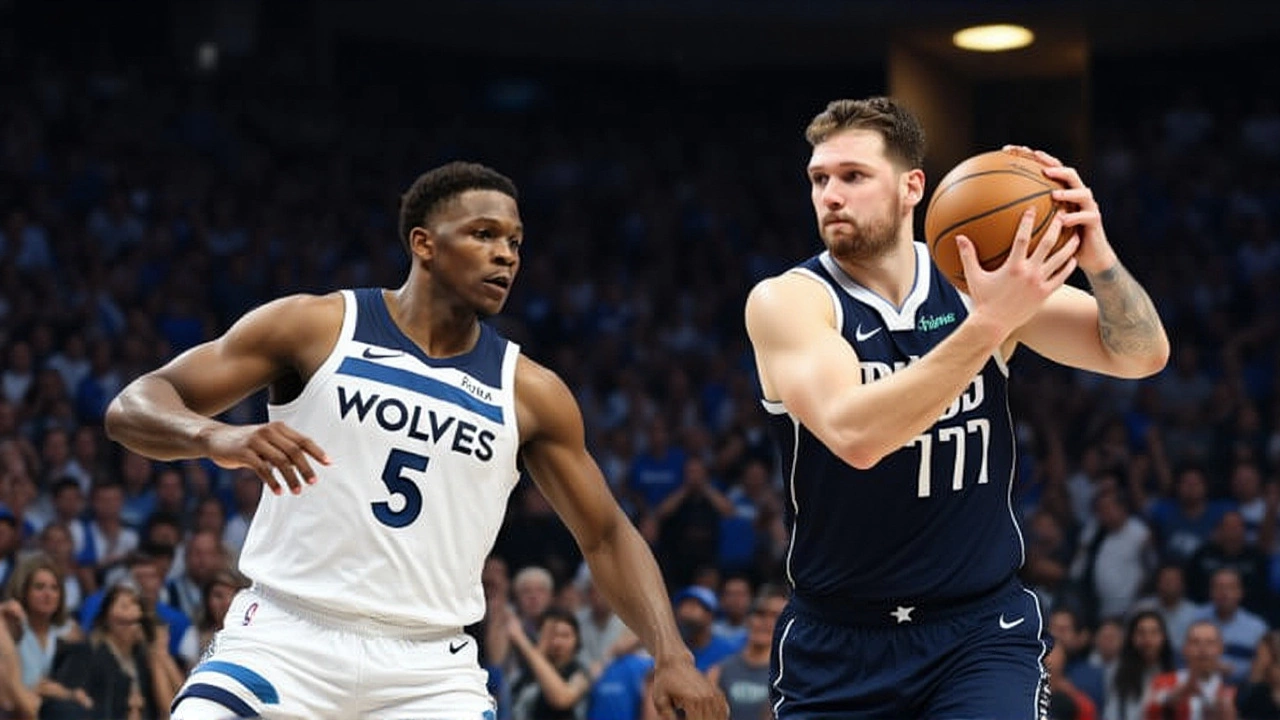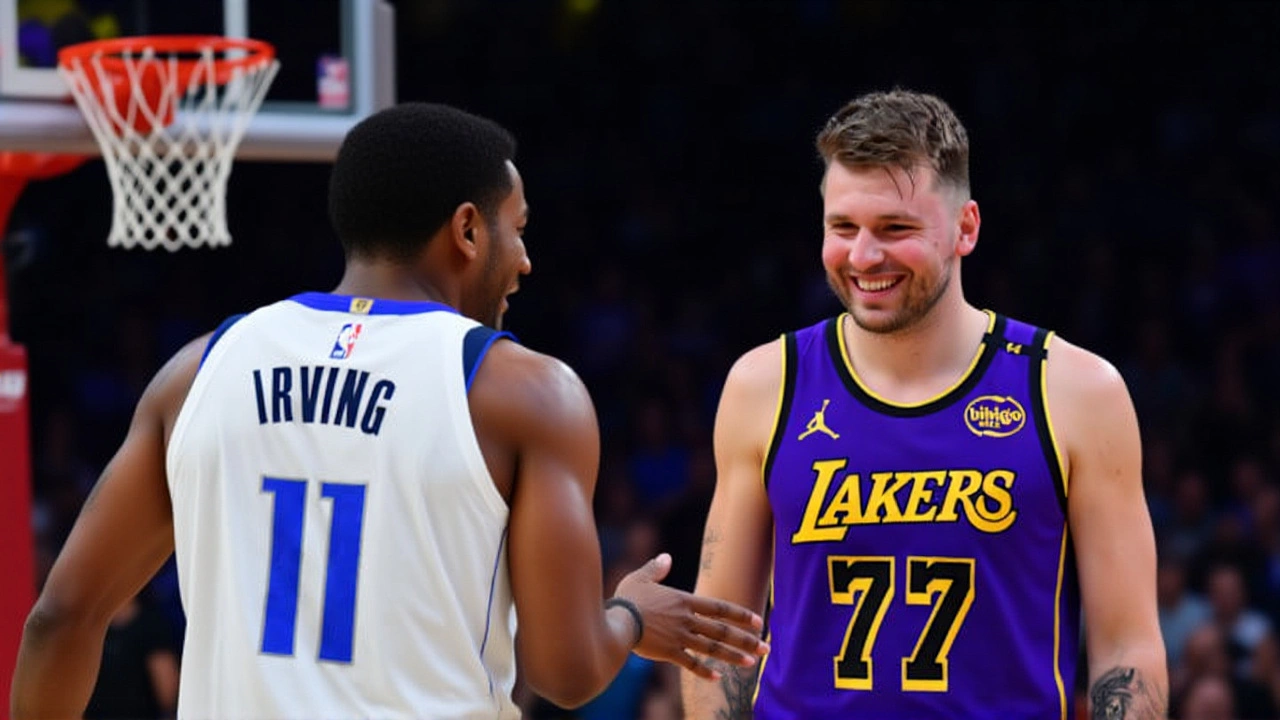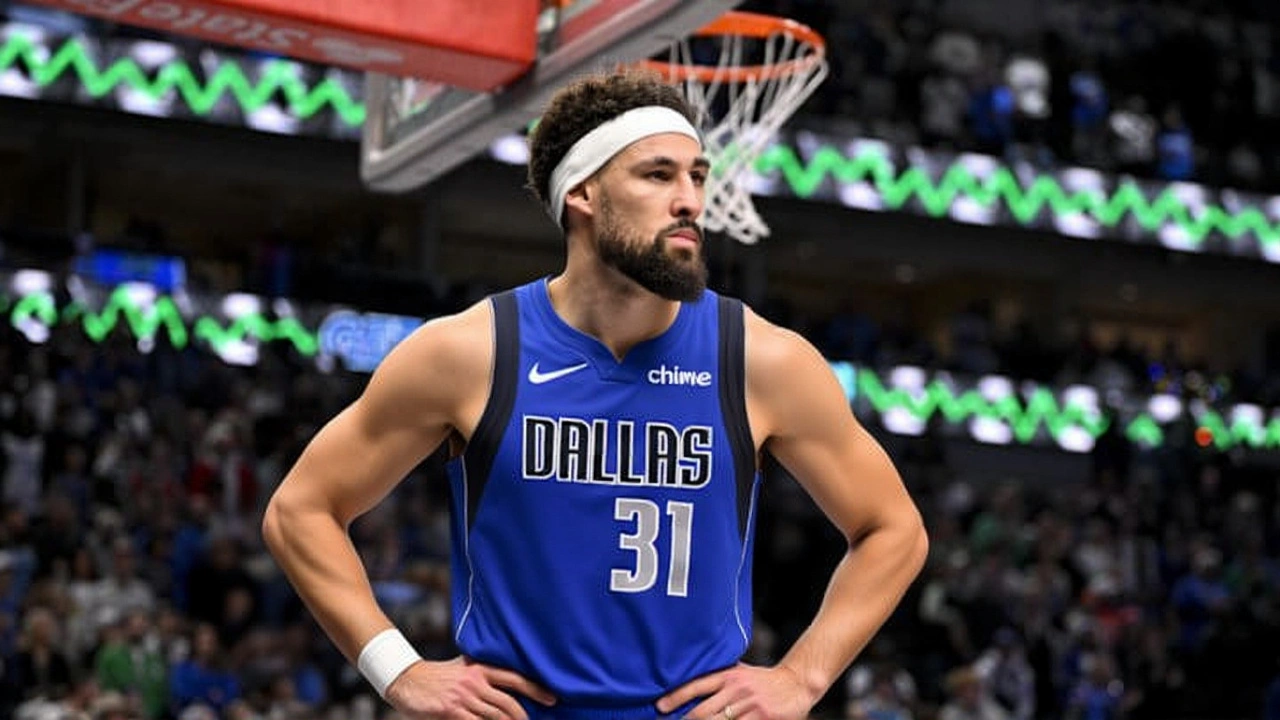The Minnesota Timberwolves didn’t just beat the Dallas Mavericks — they exposed them. On Monday, November 17, 2025, at Target Center in Minneapolis, the Timberwolves rolled to a 120-96 victory, turning what was supposed to be a competitive back-to-back game into a clinic on depth, discipline, and dominance. The Mavericks, already reeling from a grueling win over Portland the night before, were missing five key players — and it showed in every missed shot, every lost rebound, every frustrated glance toward the bench.
When the Bench Becomes the Starting Five
Dallas entered the game with a laundry list of injuries that read like a nightmare roster. Anthony Davis, their 7-foot power forward, was sidelined with a left calf strain — a recurring issue that’s now pushed his return past November 24. Kyrie Irving, the veteran point guard and offensive engine, remains out following left knee surgery, with no clear timeline beyond January 1, 2026. Then came the injury management casualties: Dante Exum, Dereck Lively II, and Daniel Gafford — all listed as out for the game, their names tagged with "injury management" as if they were weekend warriors, not NBA starters. The result? Rookie Moussa Cissé, a 20-year-old from Senegal with just 12 career NBA minutes, started at center. He wasn’t just playing — he was being thrown into the fire.Minnesota’s Balanced Assault
While Dallas scrambled for answers, Minnesota played with quiet confidence. Six Timberwolves scored in double figures — all five starters included. Jaden McDaniels and Rudy Gobert each dropped 15 points, with McDaniels hitting three straight threes in the third quarter to blow the game open. Even Anthony Edwards, the team’s 23-year-old scoring machine who averages nearly 27 points a game, had a quiet night — just 13 points on 5-for-14 shooting. And yet, the Timberwolves didn’t miss a beat. Why? Because they didn’t need him to carry them. Naz Reid added 12, Donte DiVincenzo chipped in 14, and the bench, led by Mike Conley and Jordan McLaughlin, outscored Dallas’s reserves 38-19.The halftime score — 61-44 — wasn’t just a lead. It was a statement. Minnesota’s defense swarmed the paint, limiting Dallas to just 38 percent shooting in the first half. And when the Mavericks finally got open looks from three, they missed. Again. They entered the game shooting 31.1 percent from deep — the second-worst mark in the NBA. They finished at 30 percent (9-for-30). Meanwhile, Minnesota, despite shooting just 32 percent from beyond the arc (14-for-44), kept the floor spaced and forced Dallas to rotate endlessly. By the time McDaniels drained his third three-pointer with 4:12 left in the third, the lead was 30 points. The game was over. The crowd stood. The Mavericks sat.

Why This Loss Hurts More Than the Score Suggests
This wasn’t just a loss. It was a symptom. Dallas is now 1-2 in the second game of back-to-backs this season. That’s not bad luck — it’s a structural flaw. The team lacks the depth to absorb injuries, especially in the frontcourt. With Davis, Gafford, and Lively II all sidelined, they’ve got no legitimate rim protection. No physical presence. No deterrent. Rookie Moussa Cissé is a project, not a solution. And while Cooper Flagg — last year’s No. 1 overall pick — showed flashes with 15 points and six rebounds, he’s still learning how to play through contact. He’s not a closer. Not yet.The Mavericks’ offense, once built on Irving’s brilliance and Gafford’s rolling finishes, now looks disjointed. D’Angelo Russell had 12 points and five assists, but he’s carrying too much. No one else is consistently stepping up. P.J. Washington and Max Christie are solid role players — but they’re not stars. And when the stars are out, the system collapses.

What’s Next? A Crucial Week for Both Teams
The Timberwolves, now 8-5, head into Wednesday’s game against the Washington Wizards with momentum. They’ve won four of their last five. Their defense is top-10. Their depth is underrated. And they’re playing with a calm, almost clinical efficiency — the kind of team that could make noise in the playoffs.For Dallas? Wednesday’s home game against the New York Knicks is a must-win. And even then, they’re not guaranteed healthy bodies. CBS Sports updated their injury report on Tuesday, November 18, listing both Gafford and Lively II as "Game Time Decisions" — meaning they might not even be available for the Knicks game. That’s not a plan. That’s improvisation.
What’s clear: Dallas is in trouble. Not because they lost one game. But because they’re losing their identity. They’re not just missing players. They’re missing structure. And in the NBA, structure is everything.
Frequently Asked Questions
How did the Timberwolves manage to win without Anthony Edwards having a big night?
The Timberwolves won because they didn’t rely on Edwards alone. Six players scored in double figures, led by Jaden McDaniels and Rudy Gobert with 15 each. Their ball movement and defensive intensity overwhelmed Dallas, and their bench outscored the Mavericks’ reserves 38-19. Edwards’ quiet 13-point night was offset by team-wide efficiency — proof they’ve evolved beyond being a one-man show.
Why is Dallas’s injury situation so damaging to their playoff chances?
Dallas lacks depth in the frontcourt. Losing Anthony Davis, Daniel Gafford, and Dereck Lively II — all key interior defenders and finishers — leaves them vulnerable to physical teams. Without rim protection or rebounding strength, they can’t compete in the playoffs against teams like Boston or Milwaukee. Their reliance on perimeter shooting (2nd-worst 3P% in the NBA) is unsustainable when their best scorers are injured.
What does Moussa Cissé’s start mean for Dallas’s future?
Cissé’s start is a sign of desperation, not development. At 20 years old with minimal NBA experience, he’s being thrust into a role he’s not ready for — and it shows. While he’s a project with potential, this isn’t a rebuilding moment — it’s a crisis. Dallas needs to find a veteran big man before the trade deadline, or risk falling out of playoff contention entirely.
How does this loss compare to Dallas’s previous back-to-back games this season?
Dallas is now 1-2 in second games of back-to-backs. Their only win came against Portland, but they lost by 19 to Golden State and by 24 to Minnesota — both times after winning the first game. The pattern is clear: they can’t sustain energy or execution on consecutive nights without their core players. Their rotation is too thin, and their conditioning is being tested.
Is there any hope for the Mavericks before the All-Star break?
Yes — but only if they make a move. With Davis, Irving, and Gafford all sidelined through December, Dallas needs to trade for a proven big man before the December 15 trade deadline. Otherwise, their offense will keep stagnating, and their defense will continue to collapse. Cooper Flagg can’t carry them alone. They need help — and fast.
What’s the significance of the Timberwolves’ 32% three-point shooting in this game?
It’s not impressive — but it doesn’t need to be. Minnesota shot 32% from three, their fourth straight game under 33%. Yet they still won by 24. That’s because they’re not a three-point reliant team — they’re a half-court, inside-out team built on Gobert’s rim protection and McDaniels’ cutting. Their success proves you don’t need elite shooting to win — just smart execution and depth.

